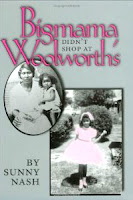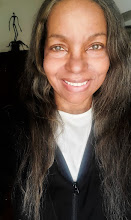How much space do you need to change the world?
 |
| Rosa Parks (center front) Montgomery Improvement Association Meeting Led by Dr. Martin Luther King, Jr. Freedom Walkers: The Story of the Montgomery Bus Boycott |
Rosa Parks and Martin Luther King used organizational skills to lead the Montgomery Bus Boycott.
"Do you think Rosa Parks and Martin Luther King had grand offices with marble floors and beveled glass windows and doors to conduct Montgomery Bus Boycott business and the Civil Rights Movement?" My mother asked. "Of course they didn't! And without any luxuries, they went about the business of civil rights to kick open some doors for you! Do you think Jim Crow cared about the size of their office or if they hold meetings sitting on folding chairs? You think they needed a big office or even chairs to do what they were doing? No!"
My mother took no nonsense when it came to entitlements and me begging for a larger share of our small house to spread out my things. She was strict in her belief that one had to take what one had and do the most they could with it before even daring to think they would get some bigger or better. As she was preaching to me, I realized I would not get a shelf in another room for my stuff. And she made me feel so bad about my little problem that I stopped begging for better accommodations and decided to do more with my space. Looking at those streamlined corners made me want to go on and do something important, like devoting time on a regular basis to cleaning my room.
It was 10 years after all that fussing, my mother's words were still with me as they are still with me today and I see her point. Martin Luther King, Rosa Parks and the rest of them made something really important happen to in the nation and the world in their Montgomery Bus Boycott meeting rooms, that were small and temporary, moving from place to place because of finances and politics. Although the Montgomery Bus Boycott lasted more than a year 1955-56, they led communities all over the nation to use nonviolence and morality to gain racial change in the United States, leading eventually--ten years later--to President Lyndon Johnson signing the Civil Right Act in 1964 and the Voting Rights Act in 1965.
My mother took no nonsense when it came to entitlements and me begging for a larger share of our small house to spread out my things. She was strict in her belief that one had to take what one had and do the most they could with it before even daring to think they would get some bigger or better. As she was preaching to me, I realized I would not get a shelf in another room for my stuff. And she made me feel so bad about my little problem that I stopped begging for better accommodations and decided to do more with my space. Looking at those streamlined corners made me want to go on and do something important, like devoting time on a regular basis to cleaning my room.
It was 10 years after all that fussing, my mother's words were still with me as they are still with me today and I see her point. Martin Luther King, Rosa Parks and the rest of them made something really important happen to in the nation and the world in their Montgomery Bus Boycott meeting rooms, that were small and temporary, moving from place to place because of finances and politics. Although the Montgomery Bus Boycott lasted more than a year 1955-56, they led communities all over the nation to use nonviolence and morality to gain racial change in the United States, leading eventually--ten years later--to President Lyndon Johnson signing the Civil Right Act in 1964 and the Voting Rights Act in 1965.
Lyndon Johnson signs 1964 Civil Rights Act
| Paying for College Without Going Broke 2014 Edition (College Admissions Guides) |
"You think a president can become president without organizational skills or a plan? Do you think Miss Rosetta can keep her beauty shop running without organizational skills or a plan? You think I can keep this house running without organizational skills or a plan?"
Oh, that's where she's going--organizational skills. "Why do I need a college education?" I asked her.
"So when things change," she said, "You will be ready. And if they don't change, don't you know want to know how to do things anyway? Oh, yes! You are going to college! And you will get a scholarship! I can't go broke sending you to college. I'm already broke!"
I never thought I was listening to my mother, but I must have been paying closer attention than I thought. I owe my organizational skills and abilities to plan to my mother. She was as orderly in her professional and domestic habits as she was in her beauty habits. With little money, she taught me to live large in a small space and manage the space as meticulously as I would a mansion.
"Everything depends on your plan and organizational skills; messy room, messy mind," my mother said.
I hated those talks about how small my study space had to be and that I had to make the best of it anyway because my little room was not going to grow any bigger in our tiny house. "If you're not organized, you can't get a college education, let alone get a scholarship to help pay for a college education." I never had anything to contribute to those discussions and I never understood where my mother was leading me. No one I knew needed or used their college education. We weren't allowed to do anything meaningful when I was growing up--janitor, cleaning lady, cook, driver, preacher, shoe shiner, barber, beautician or teacher in black schools. But I listened to her anyway. I knew there was a lesson in all her talk, somewhere.
We lived in a very small cottage with no built-in closets, just shallow alcoves where my mother devised ingenious ways of storage and called it her style, ship living.
How much worse could living on a ship have been, I thought. Dolls and dogs had more room in their houses than we did. My room was like a small box and even my mother had to be inventive to make it work, especially with an array of relatives always on hand needing a place to sleep for a few days and sometimes much longer.
"Everything has a place," she said. "So, let's make sure we put everything back in its place. You don't need much to organize a place to work or study," she said, helping me arrange the little office. "Some boards, nails, a curtain and paint will do it."
My mother arranged file storage in shoe boxes under her bed and had a tiny make-shift office with a desk and shelves in the corner. To save space, she later ordered a corner desk from a mail order company and relocated her tiny make-shift office into my room. It fit nicely into a portable closet my father had made when he was learning cabinetmaking in Veteran's School after World War II.
My mother believed in using every inch of space to maximum efficiency and she made me feel guilty by comparing me with great people like Rosa Parks.
 Custom Search
Custom Search
My mother believed in using every inch of space to maximum efficiency and she made me feel guilty by comparing me with great people like Rosa Parks.
 Custom Search
Custom Search
Clutter made my mother physically ill. She organized everything! And I will not even mention her kitchen. All spoons of the same size were kept together; pots with their lids stayed together. Dishcloths were folded in a drawer and stacked by color. My grandmother, who lived with us, was the only person allowed to touch my mother's kitchen. My father and I didn't mind. It kept us from having to wash the dishes.
All of these events influenced my mother's rearing techniques. She could see the changes and wanted me to be ready. A thing as seemingly benign as keeping my room clean and clutter free went a long way in preparing me for the coming changes and the competition those changes would bring. I am astonished by my mother's vision. She had no way of knowing the full impact technology would have on me. Although, I admit, she loved electronics and science. Each time new gadgets came on the market that she could afford, she got them. We had color television set when I was growing up and pretty sophisticated stereo systems.
I can only imagine her enthusiasm with laptop computers and cellphones. By the time, the world became digitized, my mother had checked her interest in electronic gadgetry at the door. In her later years, she was only mildly interested in such things, although she was very curious about social media and how it would probably ruin the world. But I know she would have been delighted in the compact file storage of a flash drive.
I'm not affected as severely by disorganization as my mother was, but disorganization causes me to feel vulnerable about my work and my life. When I am disorganized and surrounded by papers and business cards I have collected, some of which I no longer recognize, I lose concentration, start browsing the web, watching television, snacking or calling a friend. Avoid the dangers of disorganization and clutter by any means necessary! In the wake of Rosa Parks and the Montgomery Bus Boycott (1954-55), black families used every means to raise the future of their children and my mother was no exception.
 |
| Sunny Nash |
 |
| Bigmama Didn't Shop At Woolworth's by Sunny Nash Hard Cover Bigmama Didn't Shop at Woolworth's Amazon Kindle Bigmama Didn't Shop at Woolworth's |
Nash is also a producer, photographer, blogger and a leading writer on race relations in America--writes books, blogs, articles and reviews, and produces media and images on U.S. history and contemporary American topics, ranging from Jim Crow laws to social media networking, using her book, Bigmama Didn't Shop at Woolworth's, chosen by the Association of American University Presses for its value to understanding of U.S. race relations, to relate experiences about life with her part-Comanche grandmother.
© 2014 Sunny Nash. All Rights Reserved Worldwide.
~Thank You~

No comments:
Post a Comment
Note: Only a member of this blog may post a comment.